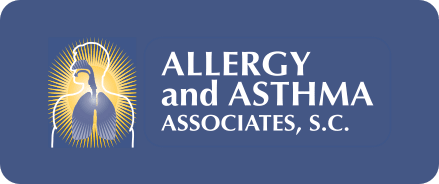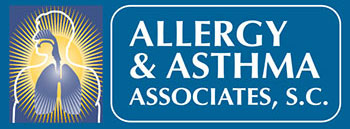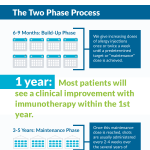Allergy shots, or immunotherapy, are a method of treatment used to relieve allergy symptoms in people who suffer from chronic reactions. They are especially potent for symptoms of allergic rhinitis (hay fever), congestion, watery itchy eyes, sneezing, runny nose or allergic asthma.
Allergy shots are highly effective, reducing or eliminating allergy symptoms 90% of the time.
How do they work?
Allergy shots work by exposing your body to allergy triggers by injecting very tiny, controlled concentrations of allergens. These are commercially prepared, sterile extracts that are used. The injections contain highly diluted amounts of pollen, mold spores, dander, or insect venom. In every case, the patient has already been diagnosed with an allergy through allergy testing.
The first 6 – 9 months are spent with increasingly-potent weekly or bi-weekly doses to help build up immunity to the trigger. This is known as the buildup phase. Most patients will begin to see results and decreased symptoms in 3 – 9 months.
After this phase, we enter the maintenance phase. During the maintenance phase, shots are administered every 2 – 4 weeks in an attempt to maintain the body’s immunity for the allergy trigger.
In the rare case that a patient sees no improvement after one year, allergy shots may be discontinued at the discretion of the doctor.
Are there any side effects to allergy shots?
As with most therapies, allergy shots do present a range of highly uncommon side effects of which we make sure our patients are aware. In most cases, these reactions are mild and not mutually exclusive with an effective treatment (i.e. even though you experience a side effect, the allergy shots can still be reducing your overall symptoms).
Some of these side effects may include:
- Itching of the eyes, nose or throat
- Runny nose
- Congestion
- Sneezing
- Tightness in the chest and/or throat
- Coughing
- Wheezing
- Lightheadedness
- Faintness
- Nausea
- Vomiting
- Hives
- Shock (under extreme circumstances)
While most of these symptoms will only accompany treatment in 1 – 5% of cases, it is still important to be aware of them. Allergy specialists will usually keep you in the office for 20 – 30 minutes after the allergy shots have been administered to make sure you don’t develop side effects, or treat them if you do.
How are side effects from allergy shots treated?
Local reactions (in a specific part of the body) are treated with a cold compress or antihistamine. If the reaction appears to be systemic (involving the entire body/multiple areas), adrenaline is administered in the form of epinephrine.
We treat severe reactions (especially those involving chest symptoms) the same way we treat an asthmatic attack. We advise our patients to either return to the clinic or the nearest emergency room if they experience a systemic reaction upon leaving our clinic.
Should I get allergy shots?
The answer is probably! They are highly effective and present a low risk to most people. If routine medications are no longer effective, if you have asthma or sinus disease, or if you have pets you can’t part with then allergy shots may be for you. Often, people who dislike taking medications opt for allergy shots. If you are looking for relief from seasonal or persistent allergy symptoms, allergy shots are one of the best and safest options to pursue.
Still, the best path is always speaking with an allergy and asthma specialist to make sure you qualify as a candidate for the therapy. Your allergy and asthma specialist will be able to recommend the safest and most effective treatment or therapy for your symptoms.
We’ve put together an infographic all about allergy shots. Click the image below to download it now!
Read more about our allergy shots program here
To schedule an appoint with one of our allergy specialists, click here!



